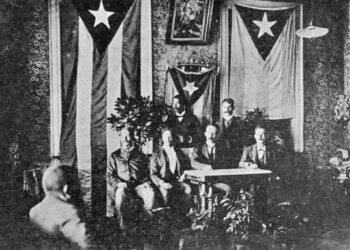Andrew Cuomo, governor of the state of New York, described the clinical trial in the United States of a Cuban lung cancer vaccine as “the result of our historic association with Cuba.” The Roswell Park Cancer Institute, based in the city of Buffalo, will be the one to start testing the CIMAvex-EGF, a treatment developed by Havana’s Molecular Immunology Center (CIM).
The trial supposes a landmark in collaboration between the island and the United States, after the reestablishment of diplomatic relations. In this way, the Roswell Park Institute, one of the most important of its type in the world, will become the first U.S. medical institution to receive the Food and Drug Administration’s authorization to test a Cuban medical therapy in that country.
As was announced, it is expected that the clinical trial will begin in November and will involve between 60 and 90 U.S. patients.
After the announcement, Democratic Congressman Brian Higgins commented that that association is a sign of what is possible when the talent and ambition of physicians and researchers is combined with the will to improve the world that surrounds us. Meanwhile, Dr. Candace Johnson, president of the Roswell Park Institute, thanked her country’s authorities for allowing this scientific link with the island and confirmed that it is the first time in modern age that a Cuban and U.S. institution have been able to work jointly.
For his part, the Cuban ambassador in Washington, José Ramón Cabañas, in a digital letter to Governor Cuomo praised the announcement and pointed out that it is the “first step to overcome the obstacles that persist and to reach a productive collaboration in this important field.”
A result of more than 25 years of researches in the CIM, the Cuban lung cancer vaccine has generated a notable interest in the U.S. scientific community and was the core of an agreement established in 2015 between the island’s institution and the New York institution. At the time Governor Cuomo headed a commercial mission to Havana where businesspeople and scientists from New York met with Cuban officials with a view to establishing new collaborations.
Just a few days ago, the topmost authorities in the sphere of health from both countries signed a memorandum of understanding in the area of cancer. “We have very similar interests and priorities in which we are all interested in advancing to another level,” U.S. Secretary of Health and Human Services Sylvia Burwell said then, and she also said she felt “optimistic with the steps being taken.”
One week before, a new package of measures announced by the Obama administration for Cuba prioritized carrying out joint medical research projects and allowed for Cuban-made pharmaceutical products to be marketed in the United States after approval by the FDA. Now, the announcement of the clinical trial in the Roswell Park Institute comes to confirm the possibilities opening up in that direction.
Even when the CIMAvax-EGF does not provide a definitive cure of the disease, it contributes in slowing down the growth of tumors and is less toxic than chemotherapy. In this sense, it has already shown promising results in Cuba and other countries like Peru, Colombia and Bosnia-Herzegovina.
A study recently carried out by CIM scientists indicates that the lung cancer patients treated with the vaccine have significantly improved in survival and quality of life compared to those who did not receive it. In addition, it is estimated that it could potentially help in the treatment of other types of cancer, like head and neck, colon, breast and prostate cancer.










